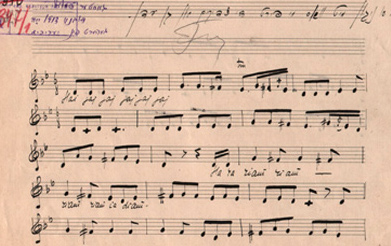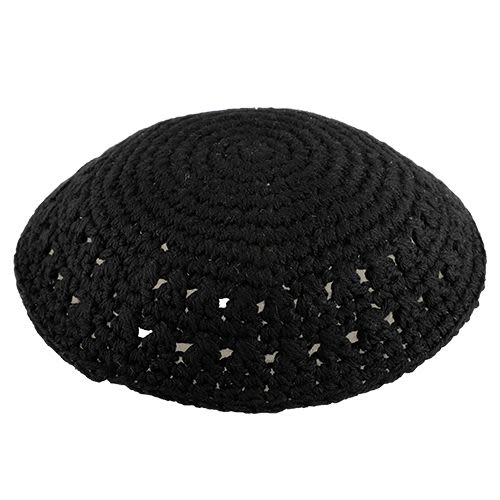
Breslev Melodies of Old
In 2009, ancient sheet music was discovered in dusty Ukranian archives, attributed not only to the time period of Rebbe Nachman, but to Rebbe Nachman himself.

Translated by Tal Rotem.
In 2009, ancient sheet music was discovered in some dusty Ukranian archives. These rare gems were not only attributed to the time period of Rebbe Nachman (late 1700’s and early 1800’s), but some were attributed to Rebbe Nachman himself. Since then, the staff of “Indik Productions” has been working feverishly to preserve these priceless assets in album form. Their efforts have paid off. In the new double album entitled The Rebbe’s Tisch, every effort has been made to preserve the original flavor of these melodies.
The well-known Chassidic music arranger R’ Dudi Kalish put together a remarkable Chassidic orchestra and choir to accomplish the task at hand. To make sure they preserved the original flavor of the melodies, Dudi Kalish and the Indik staff sought the assistance of those Breslever elders who are well-versed in the Breslev music tradition, particularly Rabbi Nachman Burstein, Rabbi Eliezer Moshe Halperin, and Rabbi Chaim Kramer. Breslev’s famed clarinetist Chilik Frank was also an important wellspring of advice in preparing these phenomenal albums.
One of the tasks of the Chassidic choir was to stick to the old style of singing. There’s nothing modern in these albums; you might not like the old Chassidic accent, but it’s authentic as it was two hundred years ago. It certainly is very moving.
One of the tracks that aroused special attention was the track entitled, “The Melody that Escorts Tzaddikim to Gan Eden,” which was passed down in a tradition from Rebbe Nachman himself, that this is the melody that accompanies the soul of a righteous individual on his way to eternal bliss. This melody was carefully guarded before the album was released, but now, we’re privileged to display a photographic reproduction of the original sheet music (above photo), as found in the Ukrainian archives.

The Rebbe’s Tisch contains seventeen tracks, each melody exquisite in its own right. The two-disc set also comes with a booklet in Hebrew that explains the source and background story of each melody. The following story, for example, tells about the melody, “Like the World to Come.” It’s hard not to fall in love with the melody after you’ve heard the story:
“Like the World to Come” (May’ain Olam Haba ) is also known in Breslev as “The Frummer Niggun.” Its story takes place in Rebbe Nachman’s proximity: Numerous times, Rebbe Nachman fasted from Saturday night after Shabbat to the following Friday night, Shabbat eve. He concealed the fact of his fasting so well that no one knew except for his beadle Reb Chaikel, whom he warned sternly never to tell anyone.
One evening in the middle of the week, Reb Chaikel came into Rebbe Nachman’s inner room and found that the Rebbe was so weak that blood dripped from his eyes and ears. Reb Chaikel, terribly alarmed, pleaded with Rebbe Nachman to eat something. Rebbe Nachman refused; another hour transpired, and his situation worsened. Rebbe Chaikel, fearing for Rebbe Nachman’s life had no other alternative and threatened, “Rebbe, I’m going to tell everyone about the fasting!” Rebbe Nachman agreed to eat something.
Reb Chaikel ran to the shochet (ritual slaughterer) with a chicken, picking its feathers while running back to the Rebbe’s house. He threw the chicken in a pot of water on the fire, cooked it as fast as he could, and ran into the Rebbe’s room with a bowl of broth. Rebbe Nachman acted as if he was ready to eat, but before he ate, he asked Reb Chaikel, “Chaikel, please sing for me the Frummer Niggun.”
Reb Chaikel was a cantor with a gorgeous voice, more than ready to do the bidding of his cherished Rebbe. He began to sing the Frummer Niggun with deep devotion. When he finished, Rebbe Nachman motioned to him to repeat. Reb Chaikel sang it a second, third, and fourth time, continuing to sing until he lost track of time. At the crack of dawn, Rebbe Nachman put a stop to the singing and said, “Nu, Chaikel – it’s now time to pray and not time to eat.” After praying, Rebeb Nachman remarked, “Nu, most of the week is over already.” It goes without saying that Rebbe Nachman finished his fast…
At a later date, Rebbe Nachman applied the Frummer Niggun to the words of the Shabbat song, May’ain Olam Haba, yom Shabbat menucha. This is the melody that Breslever Chassidim sing at their Shabbat table today. Rebbe Natan would also hum this melody during Seuda Shlishit, the third Shabbat meal. We certainly hope you enjoy these melodies, which Breslev Israel is delighted to share with you:










Tell us what you think!
Thank you for your comment!
It will be published after approval by the Editor.